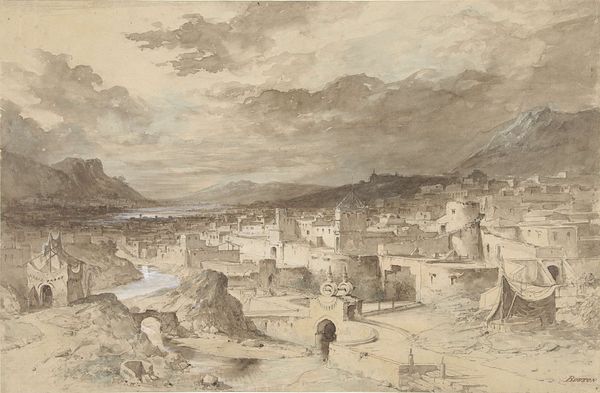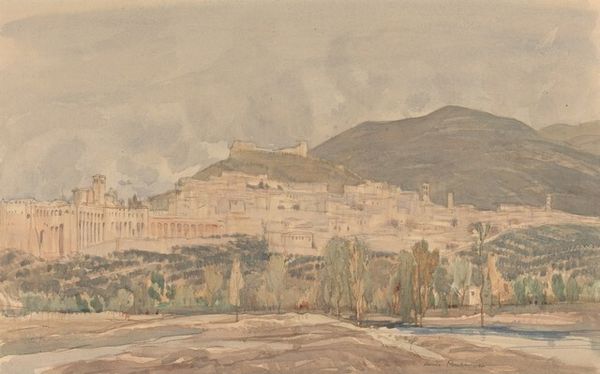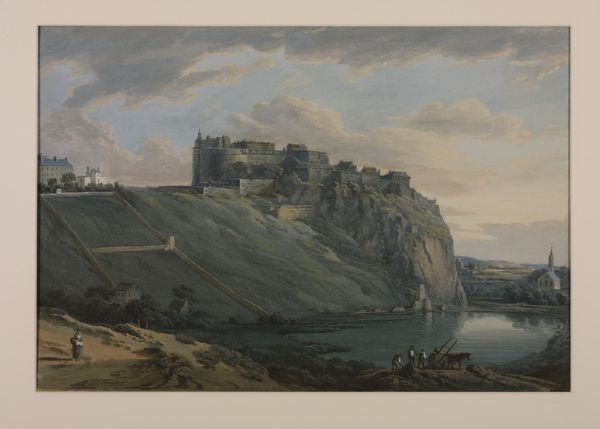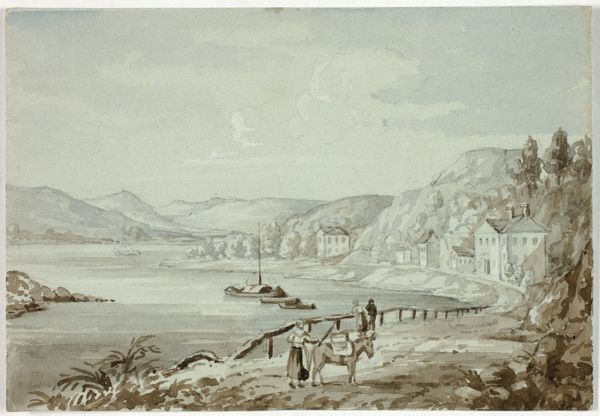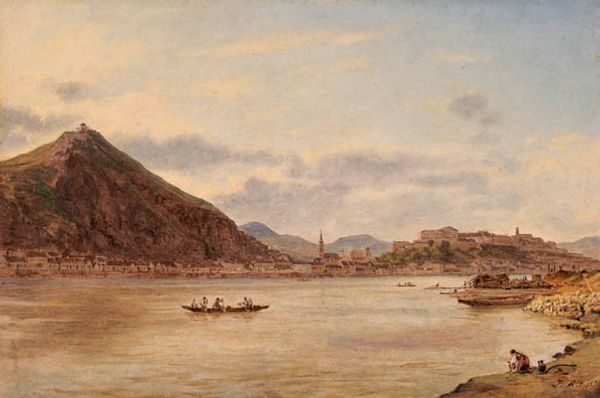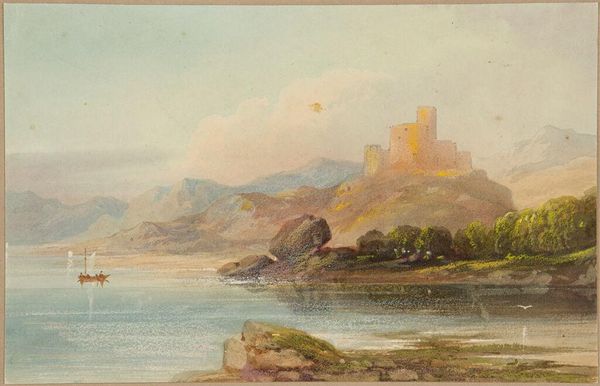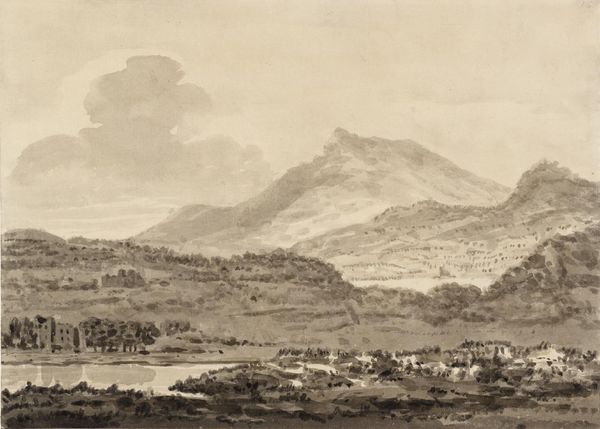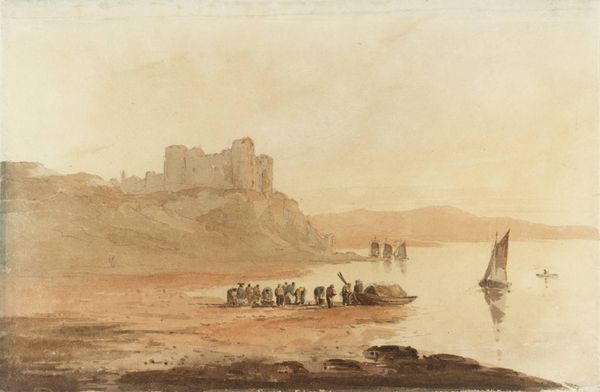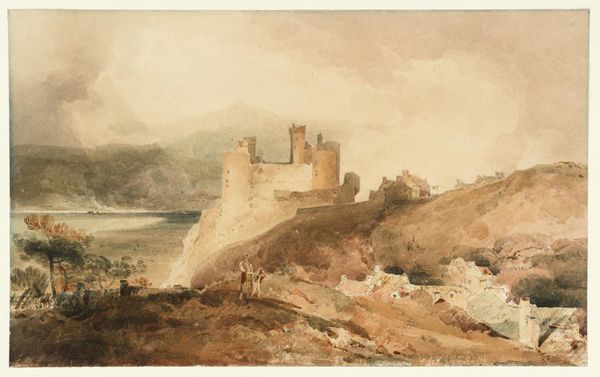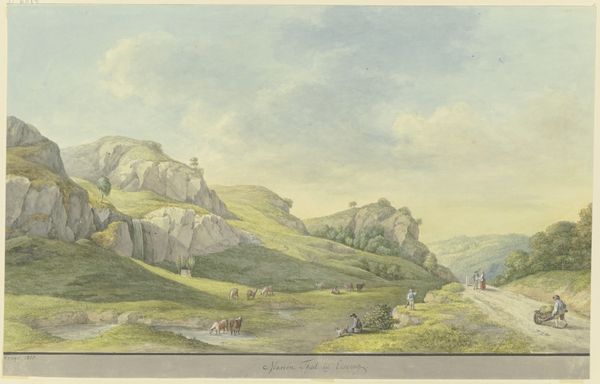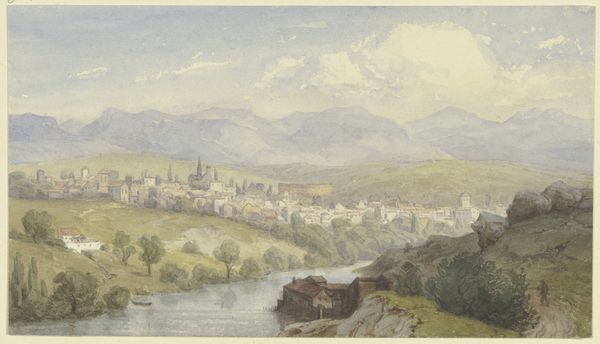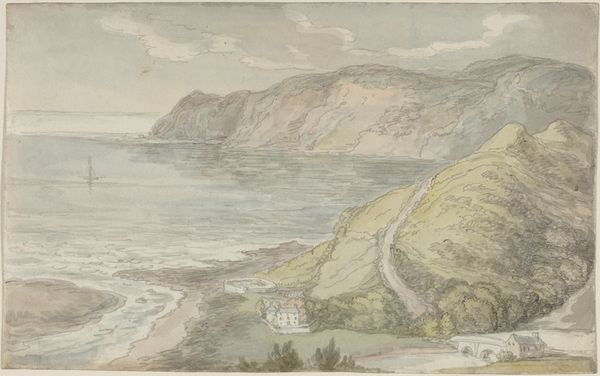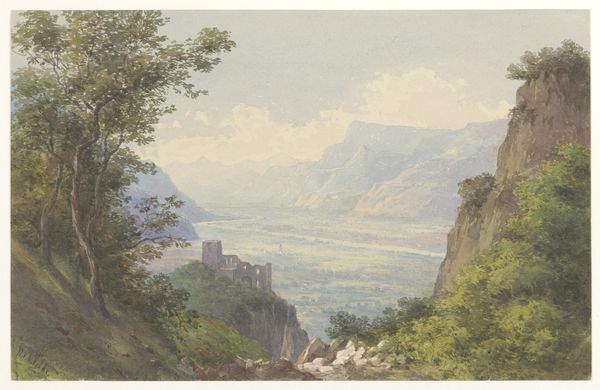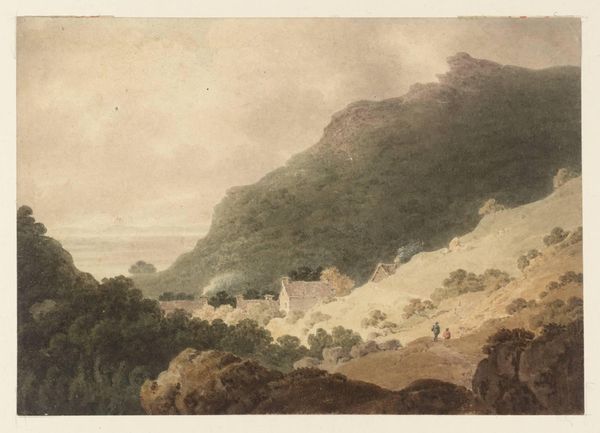
Dimensions: support: 356 x 508 mm
Copyright: CC-BY-NC-ND 4.0 DEED, Photo: Tate
Editor: This is Thomas Hearne's "Edinburgh Castle from Arthur's Seat". The watercolor feels very serene; the composition with the castle in the distance is striking. What do you see in this piece? Curator: The interplay between the precise architectural rendering and the atmospheric washes of color is quite compelling. Observe how the artist uses linear perspective to create depth, juxtaposing the foreground's roughness with the city's ordered structure. Editor: So, it’s about structure versus freedom? Curator: One could interpret it that way. Consider also the materiality: the delicate paper support and the subtle gradations of watercolor that contribute to the overall aesthetic effect. The clouds, for example, aren't just clouds; they're integral to the composition's balance. Editor: I never thought about the clouds like that. Thanks for this view. Curator: A pleasure. Every element, from the line work to the color palette, plays a crucial role in the work's aesthetic function.
Comments
tate 10 months ago
⋮
http://www.tate.org.uk/art/artworks/hearne-edinburgh-castle-from-arthurs-seat-n05792
Join the conversation
Join millions of artists and users on Artera today and experience the ultimate creative platform.
tate 10 months ago
⋮
Hearne was a member of the older generation of watercolour artists. His work was rooted in the traditions of topography – the careful study of particular places and buildings – but he adapted those conventions to modern taste. This view was based on studies made on the spot in 1798. Hearne has heightened the hills at the back and altered the appearance of the city to make a more satisfying composition. The broken green and brown tones mark a break from the topographical tradition, where colour would be used simply to tint a drawing rather than for textural effect. Gallery label, September 2004
